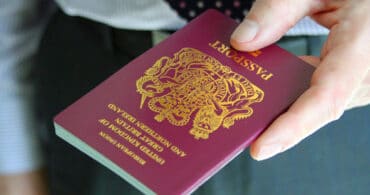Can a Tenant Run a Business from a Rental Property?
With so many people now working from home due to the COVID-19 pandemic, this does of course raise the question for landlords as to whether tenants should be allowed to start running a business from a rented property. Let’s take a look at what the law says, and the important considerations every landlord needs to make when considering allowing tenants to use their home as a place of business.
With so many people now working from home due to the COVID-19 pandemic, this does of course raise the question for landlords as to whether tenants should be allowed to start running a business from a rented property. Let’s take a look at what the law says, and the important considerations every landlord needs to make when considering allowing tenants to use their home as a place of business.
Predictions of a more permanent move to working from home once the COVID-19 pandemic has subsided are widespread. At the same time, the amount of people who are self-employed has grown considerably over recent years, and this is set to increase even further in the wake of the coronavirus-induced wash of redundancies.
The question for landlords is, is it legal for tenants to run a business from a residential property?
Can tenants run a business from my residential rental property?
Running a business from home can of course take on various guises. A digital marketer, freelance designer, bookkeeper or virtual assistant sitting at a computer is one thing. But what about a retailer who uses the spare room or garage to store stock? Or a home-based beautician or hairdresser who has clients attending the property?
Whilst some home-run businesses are straightforward, others will carry a public liability, for which the tenant will need a certain type of insurance. And that is their responsibility, as it insuring stock.
However, on the question of whether tenants are able to go ahead with running a business from a rented property, the law is clear, and the answer in most cases, is yes. The caveat is that the property remains primarily residential. This means that a minimum of 60 per cent of it is dedicated to residential use.
The tenant will, however, need your written permission before running any form of business from your property. You are within your rights to refuse, but only in certain cases.
On what grounds can a landlord reasonably refuse to allow tenants to run a business from their property?
When a tenant asks you if they can start running a business from your rented property, start by considering the nature of the business, and whether it is likely to have a negative effect on the property, the neighbours and the local area. Also ensure that the tenant has made arrangements for relevant insurance.
If you wish to refuse permission you can, but only for one of the following reasons:
- Because your mortgage states that the property must be residential only. Some lenders will insist that the property is primarily residential, but this does not mean residential only. So do check the lender terms.
- If you can demonstrate that running the business from home would lead to excessive wear and tear on the property. This will generally be quite rare, as most home businesses are run simply via a computer.
- If it is clear that the home-run business would cause a nuisance to neighbours. This could be due to excessive noise or an influx of visitors.
What should I consider before allowing my tenants to run a home-based business?
There are various other considerations you’ll need to factor in before you agree to allow your tenants to run a business from home:
- Utility bills – if the bills are included in the rental rate, you may wish to increase the required contribution bearing in mind any likely increased power consumption, especially as the tenant will be home all day.
- Internet access – if the tenant’s business is reliant on internet access, consider transferring responsibility for provision to them so that it won’t be down to you if an issue arises with connectivity or speed.
- Insurance – check your own insurance policies to make sure there isn’t a residential use only clause. If you need to make a claim, it could be refused if you are in breach of any warranty.
- Licences – some types of home-based business require a local authority licence. What’s more, running a business from home may also attract business rates for the portion of the home that’s given over to commercial use.
What about tenants registering a business at a rented property?
Registering a business at a rented property doesn’t mean that the business is actually run from there. It is actually quite common for companies to set a registered office address somewhere other than their place of operation, such as an accountant’s office.
If you discover that your tenant has registered a business at your rental property without informing you, before jumping to any conclusions, discuss the matter with them. You may find that there is in fact no business actually being run from the address at all.
Looking for help managing your rental property? Talk to homes2let.
As a landlord, dealing with tenant issues is just one of the raft of responsibilities you’re going to come up against. The good news though is that you can delegate these responsibilities, including tenant referencing, property maintenance and repairs, legal compliance and every other daily management task, courtesy of the homes2let guaranteed rent scheme, which also ensures you get your rent paid on time, every month, even during void periods.
To learn more, you are welcome to get in touch with our helpful, expert team which amongst them has many years of experience in property lettings and buy to let investment.
Related Insights

Understanding the Basics of Charging for Tenant Damage
Understanding the difference between wear and tear and actual damage is key to determining fair charges. By following the guidelines outlined in this article, you can confidently navigate the process of handling tenant damage and maintain a successful rental property business.

Temporary Right to Rent Changes to End
Changes to the right to rent checks introduced in response to the COVID-19 pandemic are set to end in May 2021. Now that COVID infection rates are falling, and lockdown measures are gradually easing, it has been announced that the emergency measure will come to an end on 16th May.

The New Green Homes Grant: What does it mean for Landlords?
Landlords are set to benefit from the Government’s latest scheme which offers vouchers up to £10,000 to cover the costs of making energy efficiency improvements to privately rented properties. Now is the ideal time to start gearing up for the new energy efficiency measures currently under consultation, which could demand that all properties let privately from April 2025 meet an EPC rating of C or above.







